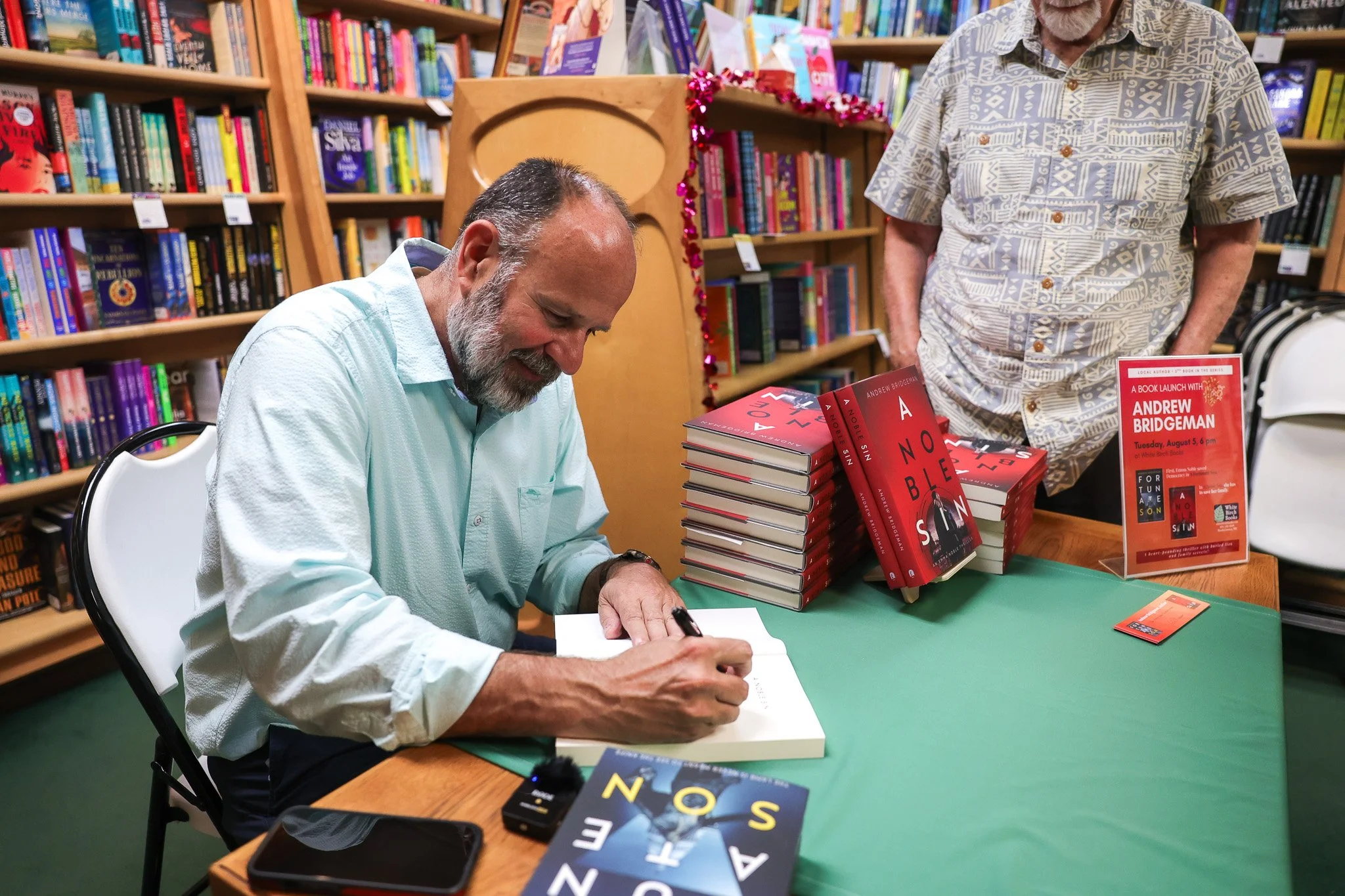Why I Write Thrillers
"What's your book about?"
When literary agent Janet Reid asked me that question at the 2019 Writer's Digest Conference in New York City, I thought I had an answer. I'd been writing for three years, crafting what I believed was a compelling historical novel set in 1740s New Hampshire. I had characters with depth, dialogue that rang true, and sentences that were crisp and literary.
But as I stammered through my response about a boy growing up in colonial times, Janet shook her head. "No," she said. "I want to know what your book is ABOUT."
In that moment, she diagnosed my writing disease: I had characters and a setting, but I didn't have a story.
That seven-hour ride home to New Hampshire changed everything. By the time I reached my driveway, I'd made a decision that would reshape my entire writing career—I was going to put my story in the drawer and begin again.
With a thriller.
The Story Muscle
The weakest part of my story muscle was plot—the engine that drives storytelling. That's why I chose thrillers. There's no hiding. Thrillers demand relentless forward momentum. Every scene must power toward the next. Every chapter must end with a hook. Every character decision must raise the stakes.
This wasn't about choosing an easier path—it was about choosing the genre that would force me to develop the writing muscle I needed most. Plot. Suspense. The ability to tell a story that grips readers and doesn't let go.
Don't get me wrong—thrillers can and should have beautiful prose. They can be cinematic and literary. But elegant sentences must always serve the story’s momentum.
The shift was liberating. Instead of getting lost in research about colonial farming techniques, I could focus entirely on the human element—on moral complexity, difficult choices, and the razor's edge between right and wrong that makes for compelling characters. I could explore themes of family loyalty, buried secrets, and the prices we pay for our past decisions without losing narrative drive.
The psychological landscape became my playground, and that's where the best stories live.
Finding My Voice
What surprised me most was how naturally thriller writing came. Those years of developing my craft hadn't been wasted—they'd been preparation. The character depth I'd learned to create served me well when building protagonists facing impossible choices. The dialogue skills translated perfectly to tense confrontations and revelations. The literary sensibilities helped me craft thrillers with substance beneath the suspense.
But more than that, I discovered that thrillers matched something fundamental about how I see the world. Life is unpredictable. Good people make bad choices. The past never stays buried. Trust is fragile, and the people closest to us often harbor the deepest secrets.
These are the human truths that fascinate and frighten me.
My Promise?
When you pick up one up, I want to send you on an adventure where the characters will draw you in and the plot will keep you on your back foot. Every twist will serve a purpose and be earned. Every revelation will come from character, not coincidence. And every ending will be surprising but inevitable because it grew from the conflicts and choices that came before.
I write thrillers because they challenge the hell out of me. I feel you standing over my shoulder as I type. I know you have high expectations and my goal is to exceed them.
That's what Janet Reid taught me that day in New York, even if she didn't realize it. She wasn't just asking about plot points or character arcs. She was asking about the fundamental promise every story makes to its reader.
What are my books about?
Doing my damndest to keep my promise.
Who Are Your Favorite Thriller Authors? Comment below and share your thoughts.


